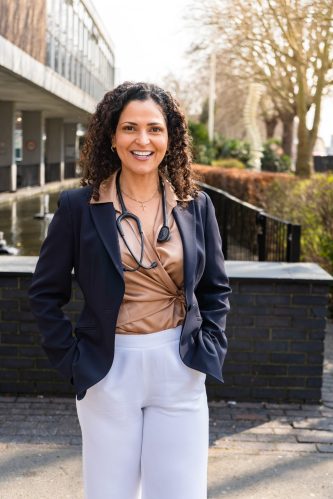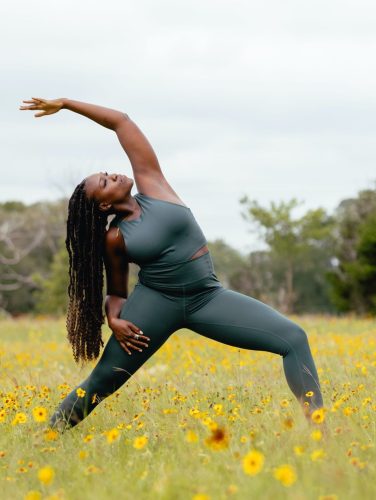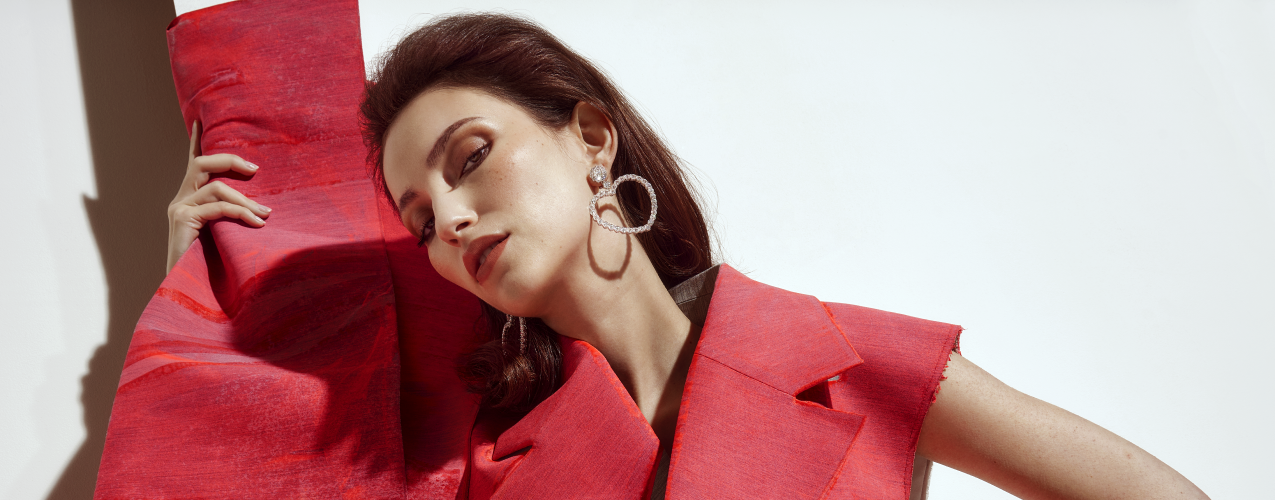Referred to as “the change”, “ovarian retirement”, “reverse puberty” and many other slightly derogatory terms, menopause is clinically defined as the time of life when a woman’s ovaries reduce hormone production and menstrual periods stop for at least a year. In this article, Dr Alba Pereira MD, a GP and menopause specialist working at Imperial College London, focuses on its physical effects and how to slow them down.
The menopause is a natural part of ageing that usually happens between the ages of 45 and 55. Symptoms can be numerous and varied. Some of them, such as mood swings, hot flushes, night sweats, insomnia, weight gain and low libido are well known. But others, such as forgetfulness, thinning and itching skin, loss of muscle tissue, joint aches and hair loss – not so much. The reasons for such diversity are unclear; however, we know they are related to factors including ethnicity, socioeconomic status, diet, exercise and smoking.
“It is essential to discuss and clarify the possible causes of menopause symptoms and manage them individually.”
– Dr Alba Pereira

The symptoms caused by the decrease of hormonal levels associated with the menopause can make a woman feel unable to cope. It is important to speak to a GP, because there could be other factors at the root of the problem, or aggravating it. It is essential to discuss and clarify the possible causes and manage the symptoms individually.
Dry and itchy skin is a direct result of decreasing levels of hormones that stimulate the formation of collagen, the protein that gives skin its strength, flexibility and support. Although there are many hormones that affect the production of collagen, the most important is oestrogen because of the abundance of oestrogen receptors in skin tissue. In addition, oestrogen stimulates the production of ceramides and hyaluronic acid, which facilitate the skin’s natural hydration. As levels of these compounds decrease, the skin loses its firmness and begins to sag. Wrinkles appear, the skin becomes prone to dark spots, and pores become more visible. As women start the menopause, they lose about 30 percent of their collagen during the first five years. After that, the decline is gradual: around two percent every year for the next 20 years.

Dry and itchy skin during menopause is a result of decreasing levels of hormones that stimulate the formation of collagen.
Falling hormone levels are also responsible for hair loss and thinning, which can affect self-esteem. It is advisable to consult a dermatologist for an assessment. There are several treatments available – including Minoxidil, lasers, or both – that can help slow down the process. There are even hair transplants for the most severe cases.
Another issue is weight gain. The amount of lean muscle – which helps burn calories – naturally decreases with ageing. So, over time, metabolism declines, which means that fewer calories are needed every day; excess is stored as body fat. Ageing is also associated with some degree of insulin resistance. Insulin is a hormone produced by the pancreas to regulate blood-sugar levels. If insulin resistance occurs, the body can’t break down carbohydrates as effectively as it once did, and weight gain is inevitable.
Lifestyle changes are crucial for managing the menopause and preventing long-term disease. Eating a healthy diet, engaging in regular physical activity, losing any excess weight and practicing mind and body therapies can alleviate symptoms and improve quality of life.
Regular exercise can dramatically improve the symptoms associated with menopause, including the increased risk of heart disease.

To help prevent sun damage, including wrinkles, dark spots and skin cancer, it’s important to wear a high-SPF lotion. And using fragrance-free moisturisers is advised to nourish skin and alleviate itching. Skincare products with retinol and peptides could also help, since these compounds encourage the production of collagen. Hyaluronic acid can assist with hydration, and pigmentation issues, such as age spots, can usually be treated with a combination of hydroquinone, tretinoin and fluocinolone acetonide. It’s best to consult a dermatologist, who will be able to assess your skin and advise on a tailored course of therapy.
There are some naturally occurring compounds found in plant sources; known as phytoestrogens, they are structurally similar to oestrogen. These plant sources include flaxseed, soy products, grapes, blueberries, broccoli, carrots, nuts and dried fruits. In addition, some evidence suggests that red clover and black cohosh may help with moderate to mild symptoms of the menopause. It is important, however, to look for products with the Traditional Herbal Registration logo. A product bearing this logo meets the required standards for safety, quality and patient information. Always consult with your GP before taking an herbal supplement or increasing your daily intake of phytoestrogens. Herbal preparations can interact with other medications, including antibiotics.

HRT can relieve most menopause symptoms, including hot flushes, brain fog, joint pains, mood swings and vaginal dryness.
Hormone Replacement Therapy (HRT) is widely used to treat menopause symptoms. In the majority of cases, blood tests are not required, and treatment can be started straight away. There are many types of HRT; most women take a combination of oestrogen and progestogen, although those who do not have a womb may be able to take oestrogen on its own. There are also many ways to take HRT, including tablets, gel, skin patches, pessaries, rings and vaginal cream. It may be taken continuously, or used in cycles. Finding the right HRT can be difficult, and any course of treatment may require adjustment from time to time. HRT appears to boost collagen production and improve both skin and bone health. However, it is important to discuss all the options with your GP, and consider the risks and benefits. And finally, it’s important to note that HRT is not a method of contraception – it is possible to get pregnant while using it.
For more information, you can contact Dr Alba Pereira or visit the NHS dedicated webpage.
Words: Julia Pasarón














Show Comments +